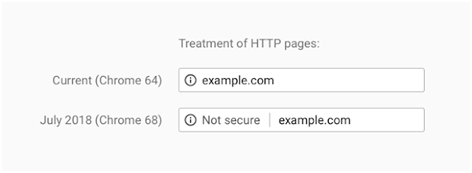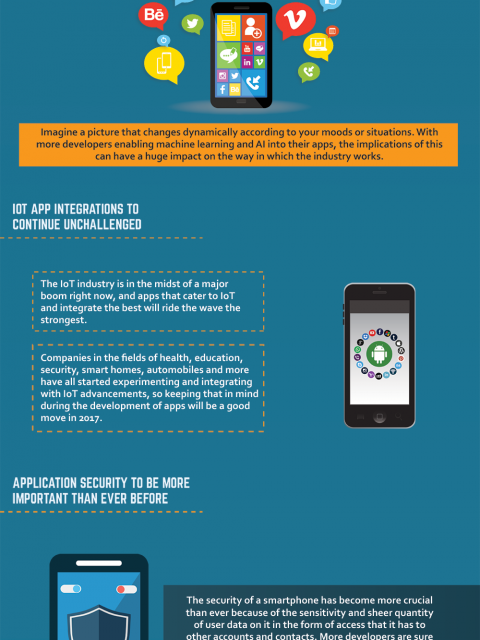Google is in a continuing search of a better user experience online. And part of such good experience relies on safety. In a blog post published last February 2018, Google Chrome Product Security Manager Emily Schechter declared that the new Chrome update,Chrome 68, will mark all sites without SSL Certificate as unsafe. This update is expected for July 2018 and will feature major changes on Chrome’s interface; being the most notorious a ‘not secure’ label for HTTP sites:

This is not the first effort of the giant search engine to promote the use of SSL Certificates on websites. In 2012 they released their beta version of the ‘HTTPS Everywhere’ extension. Eventually, having the certificate installed in a website became a ranking factor. According to Mrs. Schechter’s article, ‘81 of the top 100 sites on the web use HTTPS by default’ last year. So with the coming update, it is evident that Google seeks to go even further when it comes to online safety.
What Is an SSL Certificate and How Does It Work?
SSL is an acronym for ‘Secure Sockets Layer’. Simply put, it consists in a text file that contains encrypted data. It’s a global standard security technology that enables safe communications between an internet browser and a web server. SSL Certificate is a small data file that is installed on the server and is digitally bonded to a cryptographic key. This key is linked to an organization’s details.
Once it’s installed, the SSL activates the famous green padlock and the HTTPS protocol. And then, the traffic between the server and the browser is safe. Common user can notice this because they visualize the green padlock on the browser’s address bar. In other cases the whole address bar turns green, like when you use an Extended Validation SSL Certificate. This type of SSL will also feature the website’s owner legally incorporated company name.
The Consequences of Not Having SSL Certificate Installed
There are several unwanted consequences of not having an SSL Certificate installed on your website. The first and most essential is that your site is much more vulnerable to cyber criminals. Hackers identify most of the weaknesses in your site when information is transmitted. SSL’s encrypted information between your website and a client’s browser can drastically decrease these attacks.
Another reason to install SSL is to preserve your online reputation. Many online users know that a site without the green padlock is not safe, which can definitely influence in their decision to buy (or not) on your online store. This will be certainly affected with Chrome 68 update, which will explicitly label your site as not secure in full-red color. If we consider that 1 billion users browse on Chrome, you definitely don’t want them to have that impression about your company’s site.
Your SEO can also get severely damaged without SSL Certificate. 40% of actual page one organic listings on Google are websites with HTTPS. And after July’s update, sites with SSL will have even more priority. These sites usually have a faster page load, which is another important ranking factor.
Don’t Let HTTP Ruin Your Digital Marketing Strategy
If the most powerful search engine today warns billions of users by labeling your website as unsafe, and clients abandon your platform for the same reason, your overall Digital Marketing strategy basically collapses. To avoid this, you need to turn to HTTPS. This upgrade is priced around $300 with major names in the industry, but you can get SSL Certificate on your site for less and handled by real pros. The investment is almost mandatory, and is worth for the benefits it can provide to your overall Digital Marketing.
Community manager at Visual Contenting. Jacqueline loves to talk about social media trends, new technology and how they help businesses accelerate their marketing efforts.



